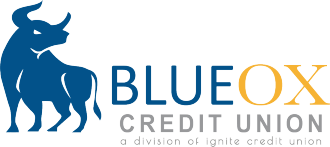Elder and Dependent Fraud
New Acquaintances
Consider the circumstances under which you build a new friendship. How did this person enter your life and what are they getting out of the friendship? Where is this person from, what do they do for a living, and who are their close friends or family?
A common ploy of fraudsters is to befriend you and increasingly gain your trust over time. You may eventually ask this new friend to come with you to make a purchase at the grocery store or to help you order new bank checks. By gaining access to your trust and financial accounts, the fraudster may deplete your finances without your knowledge. Or, the fraudster may make you reliant on them and threaten to not assist you anymore or even harm you in order to get your money.
Discourage fraudsters by having a strong financial plan in place and planning out how you are going to get the physical assistance you may need on a day-to-day basis well ahead of time. A friendship based on your dependence is one you should avoid.
Friends and Family
Unfortunately, many Elder and Dependent Adult Financial Fraud cases involve family members. A family member may be given the authority to make legal decisions for you and abuse that right. Do not put any one person in absolute control over your finances and you will avoid being put in position of absolute dependence. Anticipate your needs over time and plan ahead.
If you need help with handling your financial affairs, consult with an attorney about setting up a trust or other actions you can take to protect your assets. Also see an attorney about executing a Power of Attorney naming a person you know well and trust. This person may be an attorney, a family member or a friend. Once executed, give BlueOx Credit Union a copy and be sure to notify us of any changes to the Power of Attorney.
Signing Checks
Treat every request for your signature very seriously. Read the fine print and ask questions. If you are unsure, consult with an attorney. When seeking assistance with your finances, ask for help from more than one source in order to be sure that you get an objective view. When you are signing over money or property to anyone in exchange for your care, have an agreement written out and reviewed by your attorney.
Have your financial instructions written out and reviewed by your attorney. Notify the people you trust that you have already written out your instructions and retain them in a safe location. Your attorney should be able to give you more detailed advice on how to proceed.
Contractors, Merchants, Landlords and Others
It is not uncommon for senior citizens to be tricked into paying higher prices for goods or even paying for services never signed up for. A contractor may raise the price of work after starting. A landlord may increase your rent without following the proper legal procedures. Even when you said no to unsolicited offers to purchase magazines or enter sweepstakes by phone, in person, or by email, the goods appear along with a bill.
Educate yourself on the various fraud scams out there. Read through the ID Theft and Internet Scam sections on this site. Before signing up for any service, get the agreement in writing and read it thoroughly. If you are approached with unsolicited services, it is probably best to say no. Before hiring a contractor, check the validity of their contractor’s license. Never fully pay for work in advance of its completion.
If any of your service providers, such as your care providers or landlords, increase their charges, get an explanation in writing. By formally documenting their excuses you may discourage them from defrauding you at the risk of their losing their business license or facing other legal repercussions. No criminal wants to get caught.
Place your name and telephone number(s) including cell phone number(s) on the Do Not Call Registry. Do not accept services from solicitors. You do not have the time to effectively establish the validity of their offer on the spot.
Security Advice
Long gone are the days when all you had to worry about was knowing who you were talking to on the phone and keeping track of your ID cards, Social Security cards, debit and credit cards. Hackers and scammers can now attack you without you knowing about it. It’s still important to keep track of your physical cards and documents, but you must also be vigilant about protecting your online identity.
« Return to "Member Security" Go to main navigation
